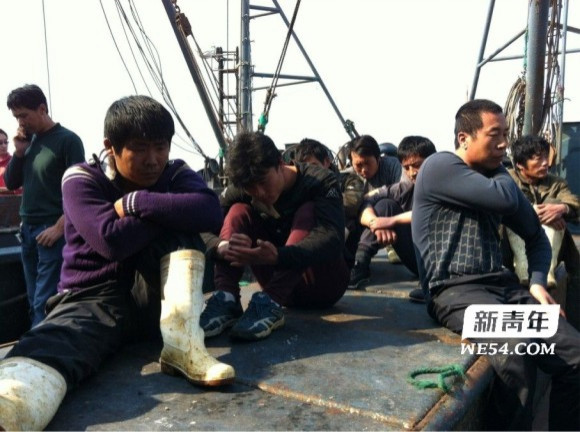Chinese Fishermen Released From North Korea

Chinese fishermen captured and taken to North Korea nearly two weeks ago were released on Sunday and have returned to the northern port city of Dalian. They are now receiving medical treatment at a local hospital.
The Foreign Ministry of North Korea confirmed that all captives had been released.
Although the 28 fishermen and their three vessels have safely returned, the incident and its many unanswered mysteries still raise a number of perplexing questions -- chief among them, who was ultimately culpable for the detention of the Chinese fishermen in the first place?
Official news about the incident has been scant, but the Chinese side affirms that it had been in close contact with relevant North Korean authorities since the beginning of the drama, raising suspicions that the hijacking may have been the act of local authorities rather than an independent group of criminals.
Chinese media report the incident as having originally taken place within its internal waters on May 8, when its fishermen were picked up by unknown persons from North Korea.
The Chinese newspaper, Global Times, a publication known for its strong nationalistic sentiment, said residents in Dalian confirmed that the North Korean coast guard had already established a past precedent of stealing fuel and equipment in the past from captured Chinese vessels.
The repatriated Chinese fishermen confirmed their ships had been nearly stripped clean of food and equipment. Their stay -- or in this case, imprisonment -- in North Korea had also been arduous, during which they were kept completely indoors for 13 days and only given daily meals of porridge.
Chinese reports did not disclose whether the hostages had been escorted back by either the North Korean or Chinese coast guard, or if they had somehow returned on their own.
The Chinese government claimed it paid no ransom for the release of the hostages; however, the owner of vessels had told local media in China that the North Koreans had at least been negotiating a price. They originally asked for almost $190,000 but later reduced the price to around $142,000.
Analysts doubt the incident will cause any major breaks in the close relationship between Beijing and Pyongyang, but it means China can now add another headache to its growing list of problems with its much smaller and heavily impoverished neighbor. That litany already includes supporting North Korea by providing a sizable amount of economic assistance, dealing with large numbers of North Korean refugees, and tolerating North Korea's continued testing of ballistic missiles and nuclear devices.
These issues are not lost on the more nationalistic members of China's vast internet community, who are vehemently arguing that the seizure of the fishermen was a sign of betrayal from a government long supported by China.
© Copyright IBTimes 2024. All rights reserved.




















